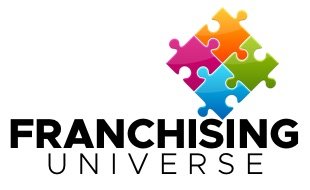AKRON — The “typical” larger-scale, multi-store independent retail tire dealership in North America operates 21 stores, generates about $2.7 million in revenue per store and carries a dozen tire brands.
That’s the picture generated by analyzing the data from Tire Business’ survey of the North American tire retailing sector this past year.
The dealership size of 21 stores is the median of the 111 dealerships profiled in this year’s report (111 due to a 13-way tie for 99th). That’s down from 24 a year ago, reflecting the acquisition of several prominent companies ranked a year ago and the subsequent expansion of the Top 100 leader board to include a dozen dealerships with 11 stores.
The average size of a Top 100 dealership fell by two to 64 for similar reasons.
In addition, Tire Business research reveals there are 46 more dealerships just outside the top 100 collectively operating more than 448 stores — 10 with 10 stores, 13 with nine and 22 with eight.
- This article appeared in the Oct. 23 print edition of Tire Business.
The average sales revenue of a store — based on data from 48 companies that supplied sales information — was nearly $2.7 million, down from the $3.5 million reported a year ago, while the median store sales of the companies that reported revenue was $1.54 million, essentially unchanged from a year ago.
The typical large dealership outlet derived 55 percent of its sales from tires and related services, 42percent from automotive service and 3percent from other, miscellaneous sources, according to information derived from the 48 dealerships that shared that information with Tire Business.
The share of a dealership’s sales represented by automotive service ranges from zero (Discount Tire and Rent-A-Wheel/Rent-A-Tire) to 90-plus percent for some of the franchised businesses.
The typical Top 100 tire dealership offers 12 brands — six to seven flag, two to three import and one to two private — with Michelin, BFGoodrich and Goodyear the dominant brands, carried by 75, 70 and 66 dealerships, respectively, followed by Bridgestone (61); Firestone (56); Continental and Cooper (54 each); Hankook (53); Dunlop (50); General and Pirelli (47 each); Kelly and Uniroyal (43); Yokohama (43); Kumho (34); Toyo (31); and Falken (29).
All but two of the 100 dealerships are privately owned, including Ben Tire Distributors Ltd., which is owned by employees.
The two firms publicly owned or controlled by outside financial holdings — TBC Corp. and Monro Inc. — are among the three largest dealerships.
In addition, two dealerships — Mavis Tire Supply and Raben Tire Co. — have outside investors as minority shareholders.
In Canada, Goodyear owns minority stakes in Coast Tire & Auto Service Ltd. and Fountain Tire Corp.
Seven of the ranked dealerships are affiliated with Tire Alliance Groupe (TAG), representing nearly 1,100 outlets, while 19 are Goodyear Tire & Service affiliated, comprising 574 outlets, while 22 are part of Michelin’s Alliance program, with 544 stores.
In addition, there are two independent Car-X Tire & Auto franchisees, with 51 outlets combined; seven Big O franchisees with 121 stores among them; and three affiliated with TCi’s T3 program, comprising 52 outlets. Car-X franchisor Monro Inc. also operates 30 Car-X outlets as corporate-held franchises.
Three dealerships — Appalachian Tire Products Inc., Charleston, W. Va.; Express Tire Auto Service Center, San Diego; and Stratham Tire Inc., Brentwood, N.H. — have female top executives, Jennifer Dial, Greta Waggoner and Denise Littlefield, respectively.






